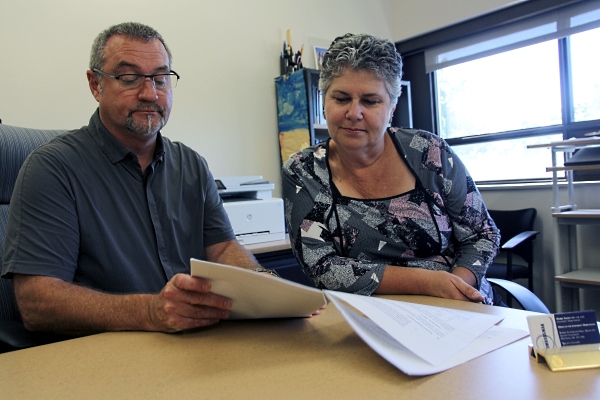A space for safe disclosure
October 3, 2016
Share
There’s an easy way to report professional or financial misconduct at Queen’s, and it doesn’t involve dark alley meetings typically seen in movies.
“Queen’s wants to know about actions or activities that might undermine its commitment to a culture of honesty, transparency, and accountability,” says Harry Smith, University Ombudsman. “Members of the Queen’s community can report concerns to their direct supervisor or university administrator. However, the university recognizes that some members of the community may be hesitant to raise certain issues using direct or formal channels. If they think they are unable to pursue other available options, they can contact our office and file a report using the university’s Safe Disclosure Reporting and Investigation Policy.”

The policy provides a mechanism for reporting, investigating, and responding to disclosures that are not governed by existing university policies or collective agreements. The University Ombudsman acts as the Safe Disclosure Officer under the policy. Members of the Queen’s community who have concerns can contact Mr. Smith directly by using the telephone line dedicated to safe disclosure matters at 613-533-2030 or by emailing ombuds@queensu.ca.
“Under the policy, anonymous reports can be accepted, and all reasonable steps will be taken to protect the position and reputation of the person who makes the disclosure,” Mr. Smith says. “However, it’s worth noting that the decision to remain anonymous may influence any subsequent investigation of the alleged act. It could affect the ability to gather evidence. And it can make it difficult to corroborate or test the veracity of the information disclosed.
Queen’s recognizes that the good-faith reporting of alleged improper acts is a necessary and valuable service to the university and all of its members. Some examples of improper acts include:
* Contravention of university policies or regulations.
* Contravention of standards and values identified in university policies or regulations.
* Contravention of relevant local, provincial, or federal laws.
* Theft, embezzlement, misappropriation, misapplication, destruction, damage, removal, concealment, or misuse of university property, assets, or funds.
* Endangering the life, health, or safety of persons or to the environment.
“It is necessary to balance the rights of the person disclosing the information with the rights of the person responding to the allegation, and to shield people who may be falsely accused,” Mr. Smith adds.
There is one more option available that provides an additional degree of separation from the university when reporting. Faculty, students, staff, and administration can report misconduct to an external third-party service provider called ConfidenceLine. This option is limited to potential fraud or financial misconduct within the university, but the disclosure may be made without the requirement to provide their name, contact information, or any information that might lead to their identity.
ConfidenceLine can be reached toll-free at 1-800-661-9675 or online via www.queensuniversity.confidenceline.net.
“The university has numerous checks in place that limit the opportunity for wrongdoing, but the range of workplace policies and reporting requirements can become confusing,” Mr. Smith says. “The safe disclosure policy aims to make the choice to express concerns or disclose information a bit easier.”
The university wants to foster trust, candor, and accountability. When other options seem inaccessible, the safe disclosure policy provides a supplementary channel for those who may be reluctant to raise difficult issues. As with other conversations at the Office of the University Ombudsman, there will be a discussion about the options available, whether or how to escalate the issue, and what the implications are of choosing a particular course of action.
Visit the University Ombudsman website to learn more and read the entire Safe Disclosure Reporting and Investigation Policy.